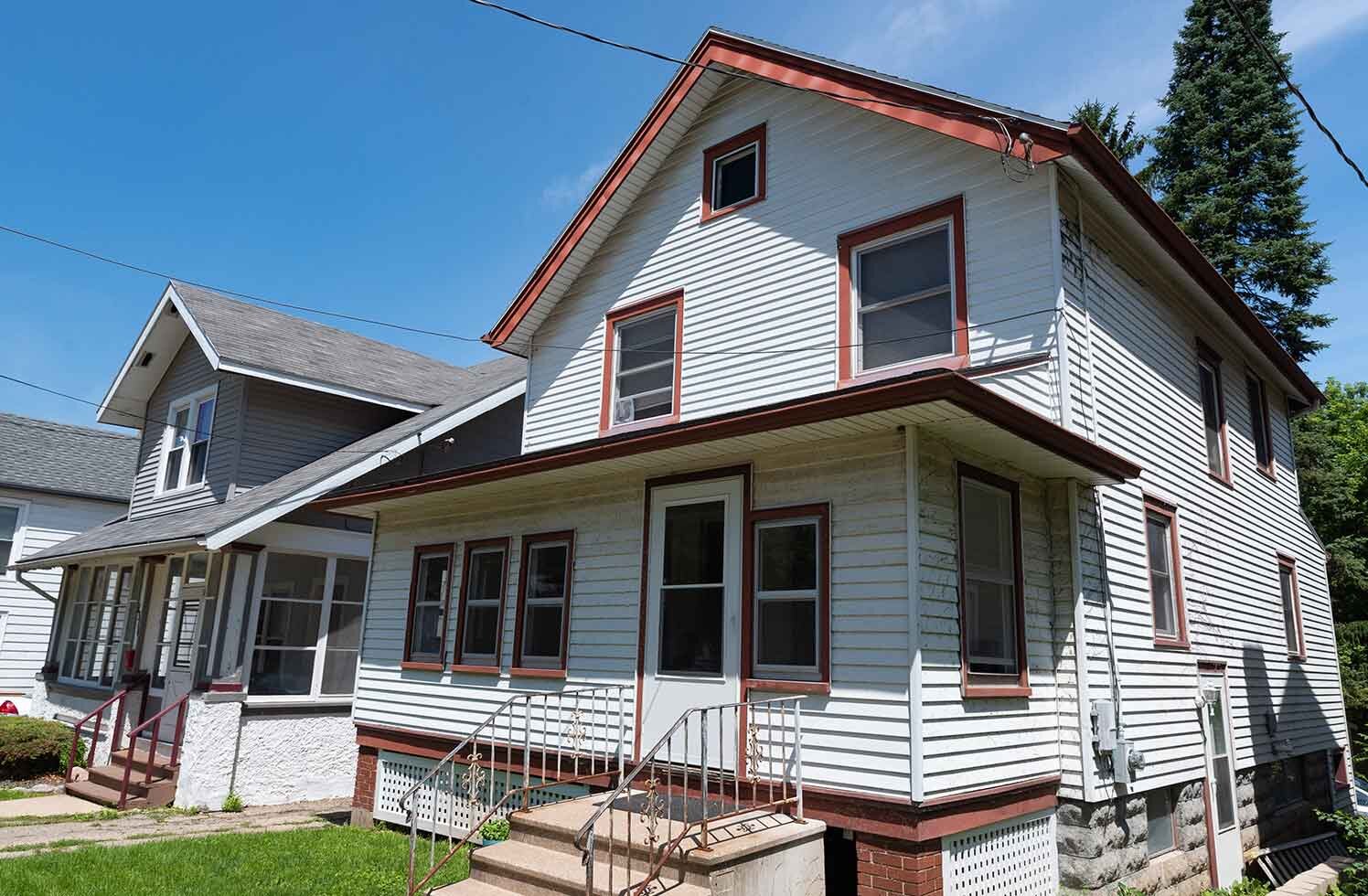Probate properties represent unique opportunities for investors, but what does this complex legal process mean for homeowners dealing with inherited real estate? This essential guide illuminates the probate journey from start to finish. We’ll demystify the probate process in clear, straightforward terms and provide you with practical, actionable strategies to navigate these challenging waters. Whether you’re looking to sell quickly or maximize your return, our insights will help you transform probate challenges into successful property transactions with minimal stress and optimal results.
What is a Probate?
When someone passes away, their assets transfer immediately to beneficiaries named in their will or become subject to court oversight if they died intestate (without a will). Probate comes in two forms: informal and formal. Informal probate involves minimal court supervision, typically when an original will exists or heirs agree on asset distribution. This article examines the more complex formal probate process, which becomes necessary when significant estate debts exist, beneficiaries contest the will’s provisions, or the original will document cannot be located. In these challenging situations, court intervention becomes essential to properly settle and distribute the estate.
Can a House Be Sold While in Probate?
Yes, the property can absolutely be sold! After a loved one passes away, a probate property may be sold by one of three authorized parties: the executor (named in the will to manage estate distribution), the administrator (Court-appointed when there’s no will but heirs exist), or the Court itself (in situations with no will and no identified heirs seeking administration). Once proper legal authority is established through the executor, administrator, or Court determination, the designated heir(s) or beneficiaries can begin the process of petitioning to sell the probate property.
What Does it Take to Sell a House in Richmond Virginia While in Probate?
As an executor, your fundamental responsibility is to protect the estate’s assets until they can be distributed to heirs or beneficiaries according to the will’s directives. Yet challenging situations often emerge when the estate faces substantial creditor debts, or when neglected property maintenance has created significant tax burdens. In these difficult circumstances, the executor, administrator, or Court possesses legal authority to sell property to satisfy outstanding obligations, regardless of heir expectations.
Imagine this situation: An elderly woman passes away, leaving her estate to an appointed executor. She has two heirs but has accumulated $90,000 in combined hospital bills and credit card debt before her death. While her home is valued at $150,000, she left no cash assets to cover the $80,000 in medical expenses and $10,000 in credit card obligations. Though she has passed, these financial responsibilities remain attached to her estate. If the heirs cannot personally resolve these debts, the executor must sell the property to satisfy the $90,000 liability. After the sale, the remaining $60,000 would be divided equally between the two heirs.
Properties in probate may also need to be sold when someone dies intestate (without a will) and leaves no direct heirs. In these cases, the Court typically mandates the property be sold, with proceeds then distributed to the deceased’s nearest living relatives according to state succession laws.
Steps for Selling a House in Probate
Struggling with a Virginia property trapped in probate? There’s a clear path forward! Selling a probate property involves just four essential steps, though specifics may vary based on your local regulations. The process starts with appointing an executor or administrator to oversee the estate—unless the deceased already named someone in their will to handle these responsibilities.
Once appointed as executor (or working collaboratively with the appointed executor), you’ll have the authority to decide the property’s fate—whether to retain ownership or sell. Many executors opt to sell when facing estate debts or when they’ve inherited property that’s too distant to maintain practically. Before listing the property, you’ll need to obtain a professional appraisal. With this valuation document, you can then request Court permission to sell—either on your own (FSBO), through a realtor experienced in probate matters, or directly to a cash investor for a quicker, more straightforward transaction.
Decide How to Sell the Property:

Valuation or Appraisal
Establishing your property’s true market value is the essential first step in the probate process. This requires engaging a qualified professional for a comprehensive valuation or hiring an experienced appraiser who understands the nuances of local probate regulations. Many jurisdictions require probate properties to sell for at least 90% of their appraised value, making it vital to work with specialists who won’t artificially inflate values. The right appraiser will provide an accurate assessment that satisfies court requirements while setting realistic expectations for the estate.

Listing the House
With your appraisal in hand, the executor and/or attorney must file an intention to sell with the court, detailing the appraised value and your preferred selling method—whether through auction, traditional listing, direct investor sale, or another approach. Once your petition receives court approval, you can proceed with listing the property. Regardless of which selling path you choose, having a probate property specialist guiding you throughout this complex process ensures compliance with all legal requirements and helps maximize the estate’s return while minimizing potential complications.

Offers
When evaluating offers on a probate property, your decision should align with the estate’s specific objectives. Consider key factors: Do you need to quickly liquidate to settle outstanding debts? Would a longer timeline potentially yield better returns? Does the property require extensive repairs, necessitating a buyer experienced with major renovations? Your answers to these questions will help determine the optimal timing and method for listing the property, as well as which offers deserve serious consideration.
By clearly understanding your goals for the property sale—whether prioritizing speed, maximizing value, or minimizing complications—you’ll be better positioned to accept the most suitable offer and move confidently to the next phase of the probate process…

Notice of Proposed Action
Prospective buyers must understand that purchasing a probate property requires court confirmation before the sale can proceed. While disclosure laws mandate this information be provided upfront, many buyers unfamiliar with probate processes are deterred by the extended timeline. This waiting period often leads potential purchasers to pursue traditional listings instead, even when probate properties offer competitive pricing. However, when a committed buyer does submit an offer and accepts the timeline constraints, the Court will review their proposal before issuing an official order approving the sale.

Bidding
For auction-based sales, probate properties can be marketed while awaiting the Court’s final Approval to Sale, helping attract a larger pool of potential bidders. In these situations, the Court typically oversees the bidding process directly. These auctions follow stringent protocols and are generally considered a last resort option. Once a winning bid is established, the executor petitions the court to authorize the sale. It’s important to note that if any Heirs object during these proceedings, the sale may be temporarily halted while the Court determines the appropriate course of action.

Finalization of Sale
In the best-case scenario, selling property through probate—whether a house, condo, rental property, or land—progresses without major complications. Even when challenges arise, once the Court accepts an offer, you can move toward closing. The executor or attorney must file a final account and petition for final distribution. Following the Court’s approval of this documentation, title documents can be signed and transferred, officially completing the transaction and distributing the proceeds according to the estate plan.
Who Buys Houses in Probate?
Absolutely, we do! RVA Home Buyers is a respected direct home buying company with an established reputation for purchasing houses for cash while minimizing stress and reducing unnecessary fees. Contact us today to get a competitive cash offer for your property caught in probate complications. We buy homes in ANY condition – without exceptions. Our experienced team specializes in navigating the intricate probate selling process, making it significantly faster and creating a stress-free experience tailored specifically for your situation.
Mistakes to Avoid When Selling a Probate Property

Moving Too Quickly
When families experience the loss of a loved one, the emotional burden often leads to quick decisions about inherited property to create space for grief. Estate executors facing mounting debts with accumulating interest may feel pressured to accept below-market offers for a fast sale to satisfy creditors. This financial sacrifice commonly happens when properties need extensive renovations that beneficiaries cannot or prefer not to fund. In these challenging circumstances, heirs typically resort to selling the house as-is, potentially sacrificing significant equity that rightfully belongs to the estate.

Not Completing a Real Estate Disclosure
Navigating Real Estate Disclosure laws can be as challenging as the probate process itself, with requirements differing dramatically across states. These essential regulations require property sellers to disclose certain issues (such as lead paint or asbestos) to potential buyers before completing any transaction.
In most states, sellers and their representatives must provide written disclosure of any “material defects” present in the home. According to the National Association of Certified Home Inspectors, material defects are “…a specific issue with a system or component of a residential property that may have a significant, adverse impact on the value of the property, or that poses an unreasonable risk to people. The fact that a system or component is near, at or beyond the end of its normal useful life is not, in itself, a material defect.”
While experienced real estate professionals handle these disclosure requirements routinely, inheriting a property you’ve never occupied presents a unique dilemma. How can you properly disclose issues you’ve never personally encountered? The good news is that many states recognize this challenge by exempting executors, sellers, and agents from completing standard disclosure forms for probate properties, acknowledging that someone who hasn’t lived in the home couldn’t reasonably be aware of all potential problems.
If you’re unsure about disclosure requirements in your state, reaching out to a probate real estate specialist – either an agent or investor with specific probate experience – can provide crucial guidance through these legal intricacies. Consider selling directly to an established investor who specializes in probate properties and fully understands the inherent risks of purchasing homes with limited disclosure information. Remember, you have several practical options for handling your inherited property efficiently and responsibly.

Failing to Hire a Lawyer
We want to be absolutely transparent – working with a seasoned real estate attorney who focuses specifically on probate issues can transform your experience navigating the probate process! They’ll understand exactly how to approach the Court so you can move forward with listing that property, while providing expert guidance through every legal requirement needed to sell your unwanted house with reduced stress and emotional burden. Even a brief initial consultation can uncover important considerations in the probate process that might otherwise lead to unexpected delays or complications.

Waiting Too Long to Start the Probate Process
During the difficult time of losing a loved one, your focus naturally shifts to processing your grief and adjusting to this significant life change. Yet the inherited property continues to demand attention – property taxes keep accumulating, utility bills arrive regularly, and mortgage payments come due month after month until the property situation is resolved. Delaying decisions about the probate property often leads to mounting costs that steadily erode the estate’s value, potentially creating financial strain during an already emotionally overwhelming period.
Who Buys Houses in Probate?
Absolutely! RVA Home Buyers is a respected direct home buying service that’s built our reputation by purchasing houses for cash with minimal hassle and reduced costs. Contact us today for a competitive cash offer on your probate property. We buy homes in absolutely any condition – no exceptions. Allow our team to guide you through the complex probate home selling journey, dramatically accelerating the process while removing the common stresses and complications most sellers face.

